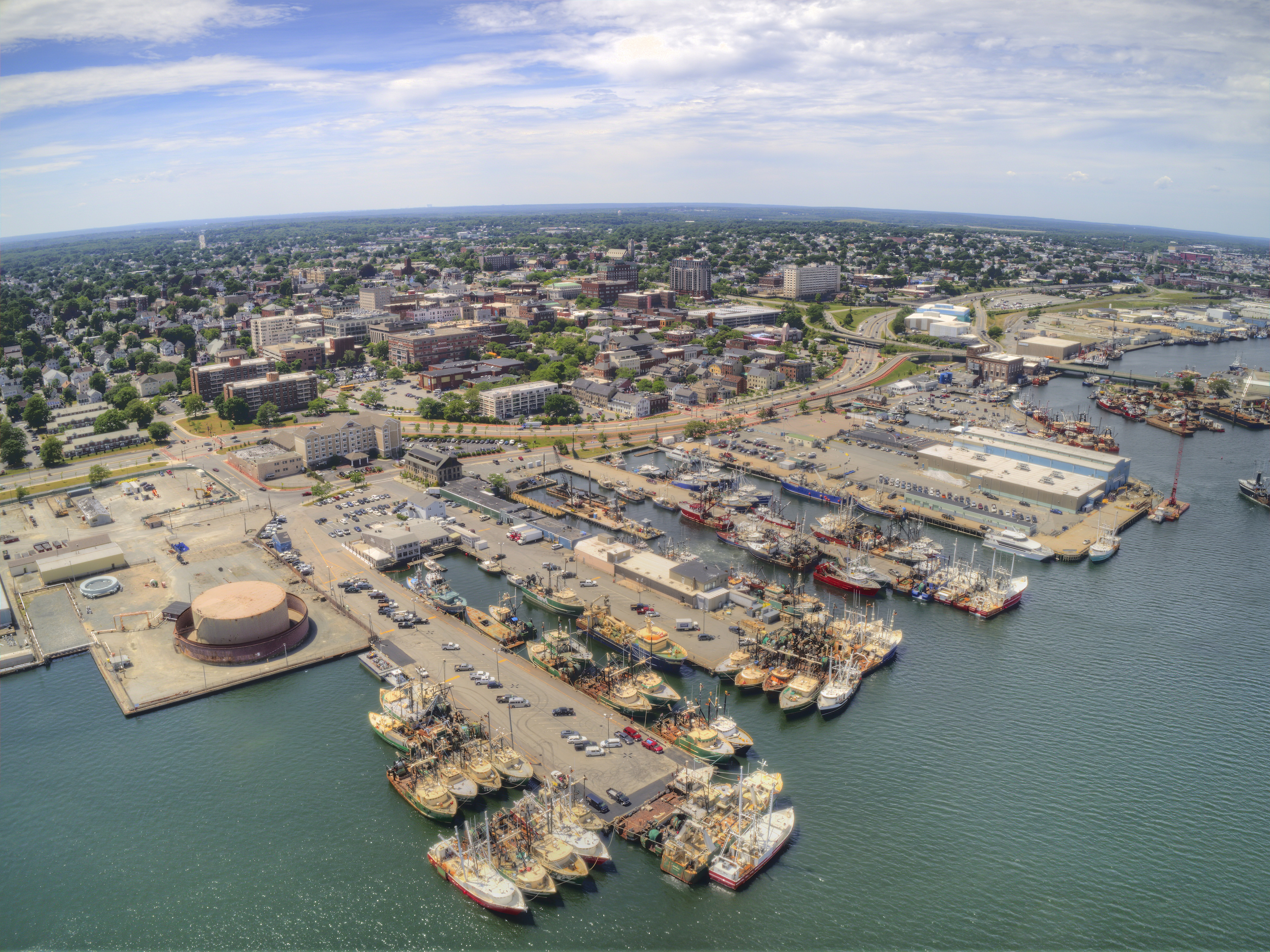
NEW BEDFORD, MA / ACCESSWIRE / January 13, 2022 / The Port of New Bedford, Massachusetts, the center of the East Coast commercial fishing industry, is offering mixed reaction to the Bureau of Ocean and Energy Management's (BOEM) announcement Wednesday that the agency will conduct a wind energy lease auction for six areas totaling 480,000 acres of the New York Bight in February.

Port of New Bedford (Credit: Adobe Stock)
The New Bedford fishing fleet - the nation's top-grossing fleet - relies heavily on the fishing grounds of the New York Bight for its success. Given the importance of the Bight, New Bedford Mayor Jon Mitchell and the New Bedford Port Authority (NBPA) have been actively engaged with BOEM regarding the development of the Bight for offshore wind energy projects.
In an April 2021 letter to BOEM Director Amanda Lefton, Mayor Mitchell, as Chairman of the Port Authority, recommended changes in the configuration of the proposed Bight lease areas to help reduce the impact on the Atlantic sea scallop industry and other fish species principally landed in New Bedford.
Specifically, the Mayor called for the southeastern boundary of the Bight's Hudson South lease area to be shifted 5 miles to the west. The Mayor's letter was followed in August 2021 by a second letter further explaining the need for a boundary adjustment.
With its announcement yesterday, BOEM responded to the New Bedford requests, agreeing to shift the boundary in question 2.5 miles to the west, as well as reducing the size of another Bight lease area, the so-called "Central Bight" area.
Mayor Mitchell commented on yesterday's developments, "The overarching lesson from yesterday's announcement is the importance of staying engaged and offering pragmatic solutions that are responsive to the concerns of both wind proponents and fishing interests. I appreciate the willingness of Director Lefton and the BOEM team to listen and adjust their approach based on the strength of the case we have made to them."
Mitchell added, "This is by no means to say that the Port's concerns with BOEM's approach to offshore wind development in the Bight are all addressed. We will continue to call on BOEM to use the wind project permitting process to minimize the economic impact on commercial fishing, and, equally important, to ensure fishermen are compensated for any economic damages caused by wind project development."
"I can't emphasize enough how important the fishing industry is to our nation's food security and how economically important the industry is to state economies of New England. The federal government should pursue a policy agenda that simultaneously takes into account the economic consequences to fishermen and the economic opportunities from offshore wind energy development. It's not an "either/or" proposition. Federal regulators at BOEM and other agencies must consider both in all their decision-making," said Mitchell.
For its part, New Bedford is uniquely positioned on issues of both economic impact and economic benefit. The Port is the largest and most profitable seafood port on the East Coast and also has the distinction of being home to the nation's only purpose-built offshore wind staging facility, the New Bedford Marine Commerce Terminal. The nation's first industrial-scale offshore wind project, Vineyard Wind, will begin staging from the Commerce Terminal in 2023.
Advocating for an effective mitigation strategy is part of the Port's commitment to ensuring that offshore wind advances in ways that safeguard the viability of our commercial fishing industry. Of particular concern to the Port is BOEM's mitigation approach, which remains limited to consideration of environmental impacts. The Port's position is that wind project mitigation plans need to consider economic impacts, given the size of the fishing industry: Thirty percent of the nation's $5.5 billion seafood industry is landed in the Northeast, with seafood landings in the Port of New Bedford itself worth $450 million annually. In New Bedford, the scallop fishery alone is responsible for $300 million in annual landings.
A 2019 economic impact study of the Port of New Bedford conducted by Martin Associates and Foth-CLE Engineering Group determined that the regional seafood industry's economic contribution comprises 39,000 jobs, $11 billion in local economic impact, $162 million in direct state taxes and $391 million in direct federal taxes.
Mitigation efforts also need to acknowledge that economic disruptions to commercial fisheries from wind farms will be felt across multiple states, not just those whose waters will host wind projects. While wind projects may be built off the coast of New York and New Jersey, their impacts will not be limited to those states. Large volumes of sea scallops caught off the coast of New York and New Jersey are landed daily in New Bedford, and fishermen who live in New England regularly fish in federal waters off the coasts of New York and New Jersey. Commercial fishing is an interconnected, region-wide industry, and needs a mitigation plan that is similarly broad in its scope.
The Port has therefore advocated for BOEM to take a proactive approach to its fisheries mitigation efforts by establishing definitive minimum standards for the mitigation process and requiring developers to use specific measures and methodologies to mitigate the impacts of offshore wind projects.
Press Contact
Mike Lawrence
(508) 979-1410
michael.lawrence@newbedford-ma.gov
SOURCE: City of New Bedford
View source version on accesswire.com:
https://www.accesswire.com/683437/Nations-Leading-Fishing-Port-Reacts-To-Federal-Announcement-of-Offshore-Wind-Leasing-In-New-York-Waters
